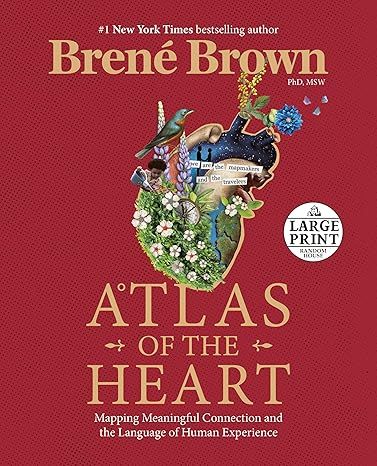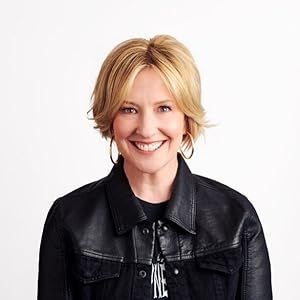Atlas of the Heart: Mapping Meaningful Connection and the Language of Human Experience (Random House Large Print)
4.7 out of 5
20,467 global ratings
#1 NEW YORK TIMES BESTSELLER • In Atlas of the Heart , Brené Brown writes, “If we want to find the way back to ourselves and one another, we need language and the grounded confidence to both tell our stories and be stewards of the stories that we hear. This is the framework for meaningful connection.”
Don’t miss the five-part Max docuseries Brené Brown: Atlas of the Heart !
In Atlas of the Heart, Brown takes us on a journey through eighty-seven of the emotions and experiences that define what it means to be human. As she maps the necessary skills and an actionable framework for meaningful connection, she gives us the language and tools to access a universe of new choices and second chances—a universe where we can share and steward the stories of our bravest and most heartbreaking moments with one another in a way that builds connection. Over the past two decades, Brown’s extensive research into the experiences that make us who we are has shaped the cultural conversation and helped define what it means to be courageous with our lives. Atlas of the Heart draws on this research, as well as on Brown’s singular skills as a storyteller, to show us how accurately naming an experience doesn’t give the experience more power—it gives us the power of understanding, meaning, and choice. Brown shares, “I want this book to be an atlas for all of us, because I believe that, with an adventurous heart and the right maps, we can travel anywhere and never fear losing ourselves.”
464 pages,
Kindle
Audiobook
Hardcover
Paperback
Audio CD
First published February 21, 2022
ISBN 9780593207246
About the authors
Brené Brown
Dr. Brené Brown is a research professor at the University of Houston, where she holds the Huffington Foundation Endowed Chair at the Graduate College of Social Work. She also holds the position of visiting professor in management at the University of Texas at Austin McCombs School of Business.
Brené has spent the past two decades studying courage, vulnerability, shame, and empathy. She is the author of six #1 New York Times best sellers and is the host of two award-winning Spotify podcasts, Unlocking Us and Dare to Lead.
Brené’s books have been translated into more than 30 languages, and her titles include Atlas of the Heart, Dare to Lead, Braving the Wilderness, Rising Strong, Daring Greatly, and The Gifts of Imperfection. With Tarana Burke, she co-edited the best-selling anthology You Are Your Best Thing: Vulnerability, Shame Resilience, and the Black Experience.
Brené’s TED talk on the Power of Vulnerability is one of the top five most-viewed TED talks in the world, with over 50 million views. Brené is the first researcher to have a filmed lecture on Netflix, and in March 2022, she launched a new show on HBO Max that focuses on her latest book, Atlas of the Heart.
Brené spends most of her time working in organizations around the world, helping develop braver leaders and more-courageous cultures. She lives in Houston, Texas, with her husband, Steve. They have two children, Ellen and Charlie, and a weird Bichon named Lucy.
Read more
Reviews
Cody Allen
5
aka The Encyclopedia of Emotions
Reviewed in the United States on October 2, 2024
Verified Purchase
This book might best be described as ‘The Encyclopedia of Emotions.’ It covers (pretty much) all the emotions we might feel in our lives, including the ones that make us feel good, like joy and wonder, and the ones that make us feel bad, like shame and envy. We are all human, and therefore susceptible to feeling any and all emotions on a daily basis, and it is therefore paramount for our personal growth to understand our feelings.
What is the purpose of Brown’s toil in these expansive emotional fields? The desire to help people better connect with one another. (After all, what is life without other people to experience it with?) She defines connection as “the energy that exists between people when they feel seen, heard, and valued, when they can give and receive without judgment, and when they derive sustenance and strength from the relationship.” We are all emotional creatures, and being able to communicate our thoughts and feelings to one another is what strengthens our social bonds.
Brown helps us achieve emotional understanding via her focus on language. “Language does more than just communicate emotion, it can actually shape what we’re feeling,” she writes. “When we don’t understand how our emotions shape our thoughts and decisions, we become disembodied from our own experiences and disconnected from each other.” Our thoughts, feelings, and behaviors all work together, and a large part of their connection is our own understanding of their relationship inside of us. This understanding hinges on our ability to properly label our emotions—the central theme of Brown’s work.
Developing this social communication starts with our own self-communication because if I don’t know and understand who I am and what I need, want, and believe, I can’t share myself with you. “I need to be connected to myself, in my own body, and learning what makes me work” in order to develop the grounded confidence I need to move through the world and cultivate meaningful connections with others. This is one of the oldest philosophical maxims—the words “Know Thyself” having been found inscribed upon the Temple of Apollo in the Ancient Greek precinct of Delphi.
In this emotional encyclopedia, I found some definitions for emotions surprising and thought-provoking. For example, Brown describes shame as the birthplace of perfectionism. Healthy striving is internally driven, she correctly observes, meanwhile perfectionism is “externally driven by a simple but potentially all-consuming question: What will people think?” For another example, she defines narcissism as “the shame-based fear of being ordinary.” This really gave me much to think about: When we fear that society will judge us improperly (or negatively), we might attempt to control the narrative ourselves, which can often lead to narcissistic behavior. Fear and shame dictate many of our behaviors, a sentiment I plan to try and observe within myself going forward.
With over eighty different emotions defined and discussed in this tome, it is designed to be revisited whenever we need a refresher. This book can help us put words to feelings, aiding us in understanding both ourselves and others. As it says on the cover, Brown’s work is designed to help us understand the language of human experience and use these tools to further develop meaningful connections. It is a wonderful guide to the emotional world and an excellent almanac for increasing our emotional intelligence.
Read more
6 people found this helpful
Luz T. Oquendo
5
Book Club
Reviewed in the United States on July 15, 2024
Verified Purchase
We are going thru the first couple of chapters. It is good and intense at the same time. It’s ironic to find out the meaning of words and feelings that you thought you knew.
2 people found this helpful
Bettmar
5
Beautiful an Insightful
Reviewed in the United States on September 9, 2024
Verified Purchase
This book does an amazing job of describing and defining emotions, as well as how to work through them to live a happier, more meaningful life.
2 people found this helpful
K
5
Extremely good read
Reviewed in the United States on September 1, 2024
Verified Purchase
BEST book ever! I have read this book from cover to cover more than once. It’s so helpful and well written. I have even bought extra copies for gifts.
2 people found this helpful
Amazon Customer
5
An essential read
Reviewed in the United States on October 13, 2024
Verified Purchase
Another phenomenal book by Brené Brown. I also loved the “Gifts of Imperfection” and her courageous TED Talks.
In “Atlas of the Heart”, she provides essential information with clear definitions of emotions to help us gain insight and improve our relationships. It’s indispensable!
cats' Kat
5
Brilliant
Reviewed in the United States on September 13, 2024
Verified Purchase
I had heard the name Brené Brown for a long time but I’ve only recently finally purchased her book (and audible). The book is visually beautiful — worth the purchase — but I’m so, so glad I also got the Audible version too. Dr. Brown doesn’t just read you her book, she talks to you about it. She is expressive, personable, passionate — it feels like you are in a conversation with her. On several occasions she’ll pause and say, “I’m going to reread those sentences. They are really important and I want you to understand them.” And then she repeats them. It made the book that much better. Of course the topic, emotions and making connections, is thoughtful and thoroughly researched. Some topics were rough to go through but learning isn’t always easy. This is a book and Audible that I will return to. Highly recommended.
Read more
6 people found this helpful
Tori Raven
5
Cannot Get Enough of Atlas
Reviewed in the United States on April 22, 2024
Verified Purchase
This was the first book of Brené's that I had ever read. I first found it not long after she had released the audio book version. First and foremost I love that Brené herself reads the audiobook version. Her sweet southern accent and passion for her work can be heard in every passage and truly brought this book to life for me. Flash forward to now and I have not only listened to the audiobook several times, I've seen the HBO Max special for Atlas of the Heart, listened to the 3 part book club series on Brené's podcast Unlocking Us discussing Atlas with her sisters, I have also just purchased the hard copy of Atlas for a coffee table book. Because it is truly just that good. I wanted a quick reference guide that I could pick up and flip to the emotion I or a loved one might be feeling in the moment and be able to dig deeper to help process it in that moment. I recommend this book to literally anyone who will listen. Atlas is a pleasureable, easy read, that expands our knowledge and vocabulary around the deep and meaningful experience of being human. Doesn't get much better than that!
Read more
11 people found this helpful
Sally C.
4
I’m here to get it right, not to be right.
Reviewed in the United States on August 9, 2024
Verified Purchase
This book is an in-depth study on human emotions, how they guide us, the human experience and the positive/negative aspects of them. After reading this, I feel validated in a lot of my feelings towards grief and loneliness. Will be picking this one up again.
John
4
A map of human emotion with a route to authentic connection
Reviewed in the United States on September 12, 2022
Verified Purchase
If you’re here in hopes of increasing your emotional intelligence, you will not be disappointed. Brown’s tour of our shared humanity is intriguing and insightful, but most importantly, she challenges us to confront those aspects of our nature we tend to hide from ourselves. It’s a brief overview, but it packs a punch.
”Sometimes, the most uncomfortable learning is the most powerful.”
By examining the spectrum of human feeling, Brown provides us with the language we need to identify the colors of our experience. With recognition, our inner awareness begins, and we can start to understand our emotional seascape.
”Our connection with others can only be as deep as our connection with ourselves.
Brown’s concept of “near enemies” was especially profound. She identifies emotions that seem similar but yield opposite fruits in terms of authentic connection: kindness / sentimentality; compassion / pity ; love / attachment; equanimity / indifference; companionship / control. With Brown’s map, we can steer clear of these shoals, sailing instead toward self-acceptance and love.
However, I found her frequent references to accountability troublesome. Brown repeatedly advises that we ‘hold others accountable for their behavior,’ and she does not explain her meaning. Considering the rest of the book focuses on true compassion, empathy, and nonjudgment, I found this counsel confusing. If I feel compassion for the one who has caused me pain, what does this “accountability” look like, and who am I to enforce it? Brown speaks at length on boundaries, and it is clear that to her, accountability is more than this.
Like justice, accountability is a dangerous concept. There are at least two seperate perspectives in any interaction, and each individual believes theirs is the “truth”. Who is to judge between them? In practice, the viewpoint with the most support wins the day, but we have seen over and over that consensus viewpoints are not always “true” or “right”. That is why the wisest humans have always counseled nonjudgment, and accountability is meaningless without judgment.
Regardless, there are powerful lessons in this book, and I recommend it for anyone with a limited emotional vocabulary.
Read more
41 people found this helpful
BlueSkies
2
A Comforting But Misleading Consumable That Obscures a More Important Message
Reviewed in the United States on December 2, 2021
Verified Purchase
"Atlas of the Heart: Mapping Meaningful Connection and the Language of Human Experience" is giftable and physically substantial. The book is weighty; the thick, glossy pages are photo book quality. My copy even smelled sweet. Like all Brene Brown books, throughout it, you'll find many passages and memorable lines worth pondering because Brene Brown has a remarkable gift for turning a phrase. The cartoon illustrating how not to "tap out" during a difficult conversation is helpful. (It is exactly what you'd find in a college-level Interpersonal Communication text book.)
The reason for my 2-star review is that "Atlas of the Heart" fails to provide the guidance about "meaningful connection" that it promises. Essentially, the book is premised on the belief that ordinary people, non-researchers, don't know how to name their emotions, nor do they know how to recognize them. And so, the book is filled with short instruction on 87 emotions. Each instruction begins with Brene Brown's definition of a term. It is followed by something along the lines of "You THINK you know what X is. What I have learned is Y."
You THINK you know what disappointment is, or grief, or gratitude, or belonging or surprise or curiosity. But no. You don't. So here is the correct definition, and here is the correct way to think about your experience. And this "Atlas" will provide the guidance you need. The reason to read it: "With an adverturous heart and the right maps, we can travel anywhere and never fear losing ourselves. Even when we don't know where we are."
Fundamentally, the book is saying, You don't have to go out and be in the world with other people to learn about any of this, you merely read the book and believe that Brene Brown and her research team is correct. And then your learning is done. This is a problem with all self-improvement books, but "Atlas of the Heart" is especially egregious because the promise is that the book will help you connect with others more meaningfully. It does not deliver on that promise. There is almost zero proof in the book that anyone who used Brene Brown's definitions of the emotions and her instruction changed their lives in any meaningful way. Often Brene Brown concludes a passage with "This is how I want to live." After five best sellers, she's still searching and searching for the right formula. If you belong to the "Always Seaching" tribe and want a book that will help you make a long aspirational list of how you want to live, then this book might be for you. But if you aspire to do more than read books and make aspirational lists, consider investing your time and money elsewhere.
The central problem with this book is that Brene Brown makes EVERYTHING in life so hard when it is not always that hard. For example, about curiosity she writes "Choosing to be curious is choosing to be vulnerable because it requires us to surrender to uncertainty. We have to ask questions, admit to not knowing, risk being told that we shouldn't be asking, and sometimes, make discoveries that lead to discomfort."
In certain contexts, she's right. In certain contexts, like going up against a powerful person or group who benefits from the truth being obscured, then, yes, curiosity is a risk and your questions and discoveries will threaten the status quo. For sure, you will be vulnerable to criticism and you will probably experience scapegoating. Curiosity is very threatening to people in power who want things to remain the same. When you are curious about things that people in power and authority are doing, you ought to expect discomfort. You ought to anticipate and weigh the risk.
But to define the experience of "curiosity" the way Brene Brown does is to ignore three quarters of the human experience in which curiosity is a function of a healthy human mind. Curiosity is NOT "choosing to be vulnerable." It is exercising a natural human ability that has led to the most beautiful music, painting, sculpture, architecture, theatre, dance and design. A better message would be: Do the very opposite of "surrendering" to uncertainty. Go be curious with a group of people who have each other's backs.
The number of times words like "surrender" is used is hugely problematic. It is the recipe for even more vulnerabilty. It increases the demand for more books by Elizabeth Gilbert, Brene Brown and other advice-givers. Our problem in our culture is how rarely anyone advises us "Go do X with a group of people who have each other's backs."
"Atlas of the Heart" is dangerous because it claims to provide "the Language of Human Experience." It offers a view of human experience as Brene Brown experienced it -- as a child who grew up with alcoholism, projection, excesses, and hurt after hurt. Tenuous friendships ended because her family relocated so many times. No one had her back until she married her awesome husband Steve. Brene Brown believes that this experience of life is what the experience of human life is for everyone. Everything is hard. Writing the book was so hard. Living up to expectations is so hard. Curiosity is so hard.
Isn't it time to point out that not everything in life leads potentially to discomfort or to hurt? Not everything requires this much thinking, analyzing, researching, sorting, coding, defining, puzzling, introspection or self-disclosure. Not everything leads to so much potential exposure and vulnerability. Again and again.
When are we ever going to learn that a balanced and happy life can not be found in some kind of written "Atlas" (filled with academic research and an experts' definitions) that depicts life as endlessly difficult but then magically leads to a better life and more meaningful connection?
Readers already know what disappointment is, or grief, or gratitude, or belonging or surprise. This book is helpful in that it adds depth to our ways of perceiving and understanding our experiences, and it will improve readers' ability to discern one type of experience from another, but the amount of hype surrounding this book obscures a much more important message. The person you need in your life is not Brene Brown. The person you need is the person who has your back, and you have theirs. Find that person (or ideally persons) and make your own map of the world together.
Surprisingly, this is exactly what Brene Brown did. What is remarkably different about "Atlas of the Heart" as compared to Brene Brown's five best-sellers is not the look and feel of this book. What is remarkably different is that for the very first time ever she openly acknowledges from the start the people who helped her and had her back.
In the past, Brene Brown presented herself as the lone researcher, holed up alone coding the data, and then alone on the stage facing criticism. Her husband Steve and her therapist Diane were the only ones named as people who were there for her consistently. Yet, in this book, on page xxvi, she includes a photo of the nine therapists who helped her identify the set of emotions most important to be able to name. She then acknowledges Dr. Ronda Dearing and writes "I couldn't have done this work without her." In the past, this would have appeared in the "Acknowledgements" section. By moving this information about her process up front, Brene Brown is suggesting the recipe for a better life. With the right people, our lives are better, our work is better, things turn out to be, as she puts it "an amazing experience!" So it took her a long, long time to learn how to find the people to take the journey with.
The one take-away from the book that is truly helpful is that whatever work we are doing (including the work of parenting) is less hard and is more amazing when we're with people we can trust and can turn to. I hope that in the interviews and the promotion for the book Brene Brown will shift the discourse from what she ~alone~ did to write the book and what she ~alone~ hopes that the book will achieve to what she and her colleagues did to write the book and what they together hope the book will achieve.
There is an important message for the 21st century suggested in the book: With an adverturous heart and ~the right people~ we can travel anywhere and experience less hurt, less uncertainty, less risk, less shame, less distress, and more meaningful connection. In the ideal world, this "Atlas of the Heart" would be the last self-improvement book anyone would purchase. First order of priorities: do what Brene Brown did and find your people. Have each other's backs. Then go out and experience life as it can be: amazing.
After five best sellers, after searching and searching for the right formula, Brene Brown finally found it. It wasn't what her publisher contracted her to write about. It didn't fit the self-improvement-by-reading paradigm. Good for her for putting it up front instead of in the "Acknowledgements." We don't need more granularity around our emotions, more distinguishable pieces around our emotions. We need each other.
Read more
3 people found this helpful
Top Brené Brown titles
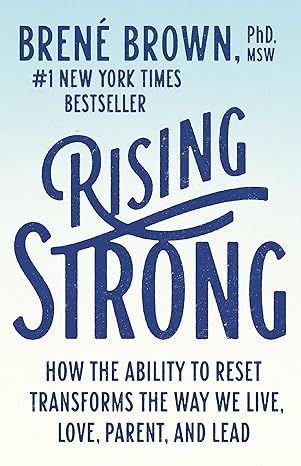
Rising Strong: How the Ability to Reset Transforms the Way We Live, Love, Parent, and Lead
4.7
-
11,216
$0.99
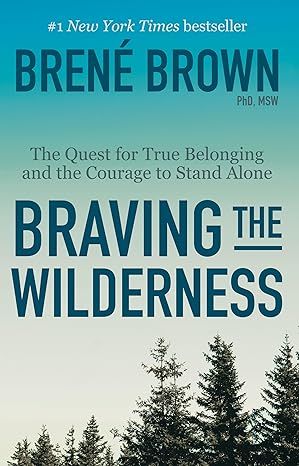
Braving the Wilderness: The Quest for True Belonging and the Courage to Stand Alone
4.6
-
14,403
$0.99
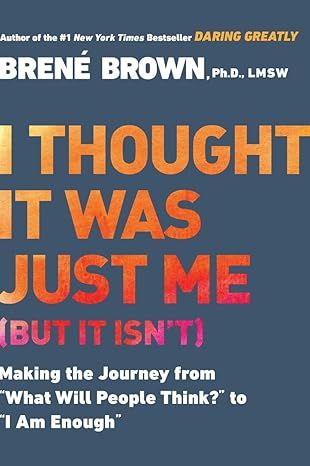
I Thought It Was Just Me (but it isn't): Making the Journey from "What Will People Think?" to "I Am Enough"
4.7
-
7,822
$0.99
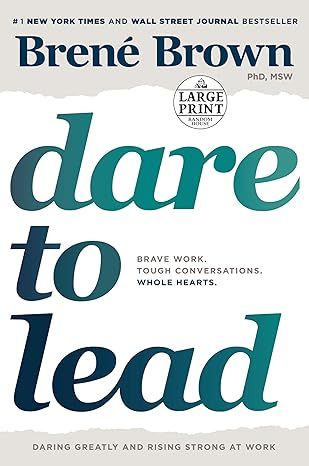
Dare to Lead: Brave Work. Tough Conversations. Whole Hearts.
4.7
-
21,212
$0.99
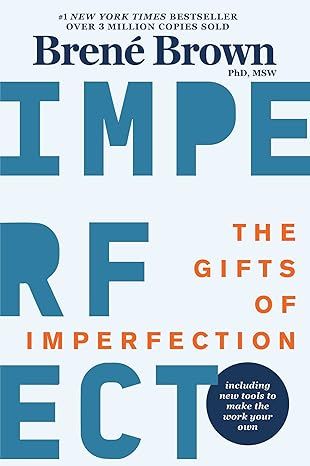
The Gifts of Imperfection: 10th Anniversary Edition: Features a new foreword and brand-new tools
4.7
-
42,318
$0.99
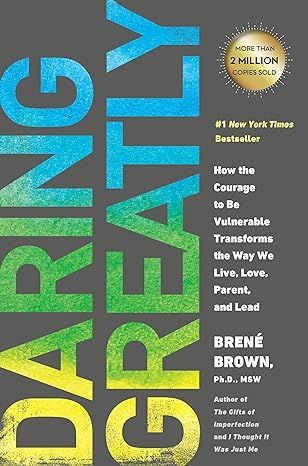
Daring Greatly: How the Courage to Be Vulnerable Transforms the Way We Live, Love, Parent, and Lead
4.7
-
30,025
$4.43
Best Sellers

The Tuscan Child
4.2
-
100,022
$8.39

The Thursday Murder Club: A Novel (A Thursday Murder Club Mystery)
4.3
-
155,575
$6.33

Sapiens: A Brief History of Humankind
4.6
-
140,302
$13.49

The Butterfly Garden (The Collector, 1)
4.3
-
88,556
$9.59

Things We Hide from the Light (Knockemout Series, 2)
4.4
-
94,890
$11.66

The Last Thing He Told Me: A Novel
4.3
-
154,085
$2.99

The Perfect Marriage: A Completely Gripping Psychological Suspense
4.3
-
143,196
$9.47

The Coworker
4.1
-
80,003
$13.48

First Lie Wins: A Novel (Random House Large Print)
4.3
-
54,062
$14.99

Mile High (Windy City Series Book 1)
4.4
-
59,745
$16.19

Layla
4.2
-
107,613
$8.99

The Locked Door
4.4
-
94,673
$8.53
